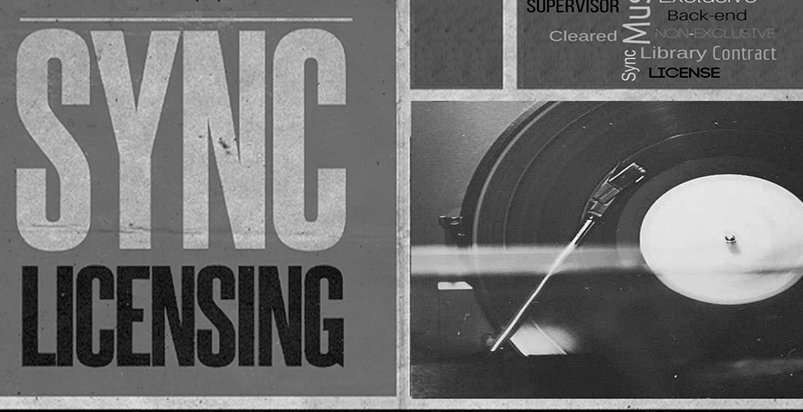Writen by: Deny Smith @Epic Music
Music licensing can be tricky. There are many different types of licenses, with various ways each can be used. Whether you are a musician or creator looking into licensing your music or adding music into a video you created, it is essential to learn the best practices.
The wrong license can cost you a lot of money in the form of revenue, or it can lead to a lawsuit. In this article, we will be covering all aspects of music licensing.
The Difference Between Commercial Use and Non-Commercial Use
Understanding the difference between commercial and non-commercial use is crucial. Commercial use is any use of music that generates revenue. Non-commercial use is any use of music that doesn’t generate revenue. For example, using music in a school project would be considered non-commercial use, while using music in a TV ad would be regarded as commercial use.
Revenue is described as any form of compensation, including but not limited to money, barter, or services. That is important to know. Let’s say you are a wedding videographer and add music to a video.
What license do you need? You may think that it is non-commercial use because you are not selling the video. However, you made money by producing the video. While you may believe that no one will ever notice your use of the song.
There is a chance the bride could post the video on YouTube, and you could open yourself up for a lawsuit. It is essential to be well researched and specific when you are deciding what license you will need.
Understanding What Commercial Purposes Are?
Many times the music licensing you need will be for commercial purposes. Let’s take a look into what commercial use means. Commercial use includes activities in which the licensee intends to generate revenue.
This can be achieved through advertising, selling or streaming the music, or using the music as part of a larger product that is sold. At this step, you need to take a critical look at how your music will be used.
The next thing you need to decide is what type of commercial license you need. There are three main types of commercial licenses: use, master, and sync. The use license gives the licensee the right to use the music in a specific project or projects only.
Master licenses give the licensee the right to use the music in its original form. Sync licenses are for the use of copyrighted music in synchronization with a visual medium, such as a movie, TV show, or video game.
If you are a musician or creator looking into licensing your music, it is vital to be aware of use, sync, and master licenses. Sync licenses are generally less expensive than master licenses, but there are more restrictions on how the music can be used. Master licenses offer more freedom with how the music can be used, but they are also more expensive. Use licenses are the most affordable, but also have the most restrictions.
When licensing your music, you will need to decide if you want an exclusive or non-exclusive license. Exclusive licenses give the licensee the right to use the music in a specific project or projects only. Non-exclusive licenses allow the licensee to use the music in multiple projects. This may sound complex, but once you understand the scope of your project, it should be fairly easy to figure out.
What Type of Audio is Right For Your YouTube Channel
If you are creating a YouTube channel, it is important to understand the purpose of your channel before deciding what type of license you will need. It is much easier to get it right before you start than going back later and having to change all of your music because you don’t have the right license type.
If your YouTube channel is for personal use only, you will most likely need a use license. This license allows you to use the specific music in a specific project or projects only. If your channel is for business use, you will need a commercial license. This license gives you the right to use the music in any way that generates revenue.
Understanding the Costs Associated With a Music License
Music licenses can be expensive, and it is important to budget for them. The price of a license can vary greatly depending on the type of license and how prominent the creator of the music is. The more freedom there is in the license, the more expensive it will be. The more well-known the creator of the song is, the more expensive it will be.
The average cost for a non-commercial song license is $100. For a commercial song license, the average cost is $1,000. These are just averages, and the price can vary greatly depending on the song and how it will be used. When budgeting for a music license, always keep in mind that you may need multiple licenses if you want to use the same song in multiple projects.
It is always good to plan ahead for licensing fees for any project, especially if you will be billing a client. One efficient way to do this is to include it in your shoot planning documents. Your shoot planning documents should include a call sheet, shot list, and budget.
A call sheet is a document that includes the necessary information for your shoot. This includes the shooting schedule, contact details, and actual shooting location. To start, find a free call sheet template online.
A simple call sheet template will work just fine. The shot list is a list of all the shots you plan to capture during the shoot. This includes both static and moving shots. The budget should include all of the expenses associated with the shoot, including the music license.
In Conclusion
In the age of digital content, it is more important than ever that you have a license for your audio. Licenses are needed to avoid copyright infringement and can help ensure that you’re in compliance with industry standards.
When licensing music for YouTube videos, there’s a lot to consider. We hope this article has helped bring clarity to some common misconceptions about music licensing. We provided an overview of ways video creators can plan ahead when budgeting for these costs by including them in their shoot planning documents from the start.
Source: Vents Magazine







